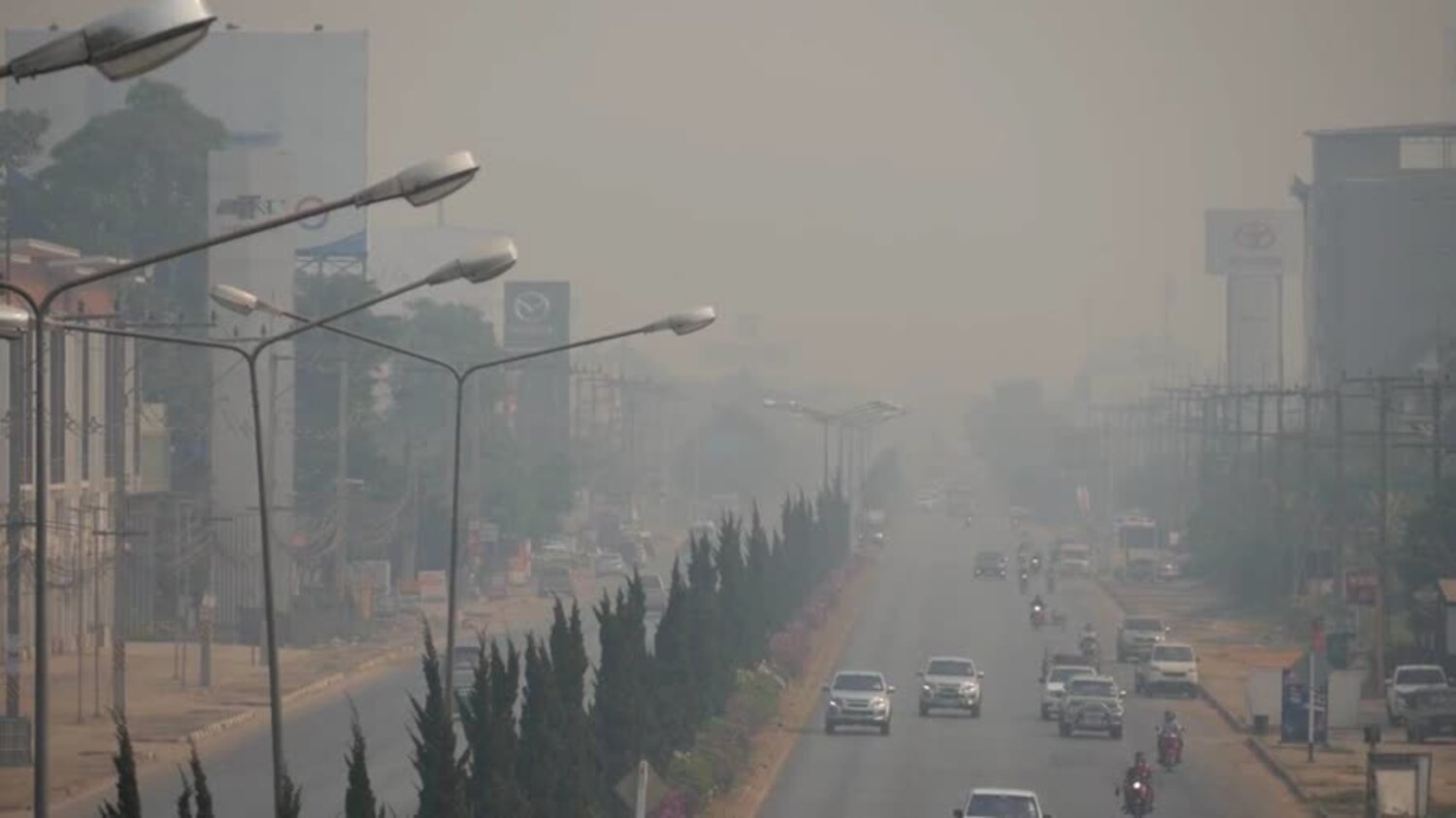(CTN News) – Despite less traffic during the New Year holiday, Bangkok is still dealing with serious air pollution.
As a result of serious health concerns, sixteen districts were designated as red zones today, December 29.
At 8am, 16 out of the 50 districts in the city had PM2.5 dust levels over 75 μg/m3, according to the Geo-Informatics and Space Technology Development Agency (Gistda) website.
Bangkok Yai, the most impacted district, recorded a value of 87.8 μg/m3. Thon Buri came in at 82.7 μg/m3, Laksi at 86.9 μg/m3, and Don Muang at 87.5 μg/m3 were just behind.
Klong San, Samphanthawong, Bangkok Noi, Phra Nakhon, Phasicharoen, Bang Rak, Nong Khaem, Lat Phrao, Sai Mai, Din Daeng, Taling Chan, and Bang Khen were among the other districts that were severely affected, with concentrations of 80.2%, 79.3%, 78.3%, 77.8%, 75.9%, 75.8%, 75.8%, and 75.8%, respectively, of the other districts listed below.
The remaining 34 districts were placed in the orange zone, which means that pollution levels were starting to have a major impact on people’s health.
The provinces of Nonthaburi and Samut Sakhon, which are adjacent to one other, were also designated as red zones. The PM2.5 dust level in Samut Sakhon was 82.4 μg/m3 at 8am, according to Bangkok Post, while in Nonthaburi, it was 76.5 μg/m3.

As a result of crop burning, pollution levels tend to rise throughout the winter months. Earlier this month, the Cabinet approved incentives totalling 8 billion baht to address this. Incentives like these are offered to sugarcane growers who commit to harvesting new sugarcane instead of burning the old.
In related news, Bangkok faces serious air pollution and is ranked third worst in the world for PM2.5 dust levels.
Due to urban traffic, woodland fires, and agricultural burning, smog obscures the capital’s skyline.
A dangerously high air quality index of 198 has many worried about their health. Even Chiang Mai City, which ranks tenth in the world for pollution, is not immune.
Everyone should remain indoors, wear N95 masks, and cut back on outdoor activity. In response to the deteriorating air quality, Bangkok Governor Chadchart Sittipunt has called for more use of public transportation and telecommuting.



